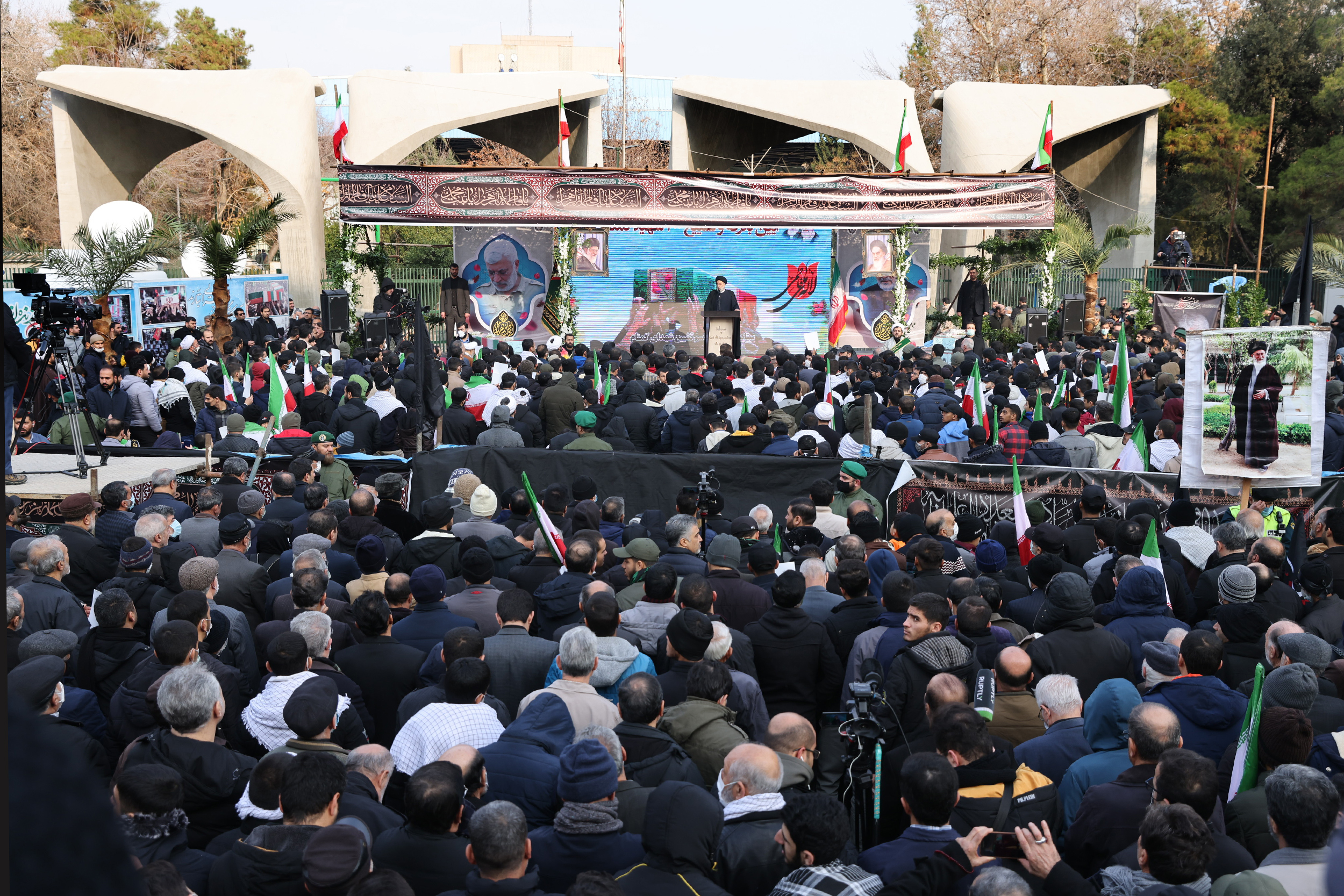Iran’s President Ebrahim Raisi has vowed that “no mercy” will be shown to those who took part in the recent anti-government protests.
“The arms of the nation are open to all, but we will not show mercy to the miscreants,” President Raisi said while addressing nation on December 27, according to the official website of the Iranian president.
Referring to the “enemies” of the Iranian nation, he said that “you thought you could achieve your goals by creating rumours and rioting, while you have experienced this path many times and failed, why did you make a mistake in your calculations again?”
“The country has made a lot of progress and that is why the enemy is angry,” the president added.
Since mid-September, Iran — a country of over 85 million people — has been rocked by countrywide protests. Protests in Iran were triggered by the death of 22-year-old Mahsa Amini, a young Iranian-Kurdish woman who was detained by the country’s morality police for allegedly violating the Islamic Republic’s strict dress code.
The anti-government protests, largely fueled by the middle and upper classes, pose one of the biggest threats to the country’s leaders. Protests of this scale have not been seen in Iran since the 2009 Green Movement brought millions to the street. Tehran accuses the West and foreign-based media of inciting the unrest.
As of December 28, Iran’s security forces killed at least 507 people in the crackdown on the protests, including 69 under the age of 18, according to the foreign-based Human Rights News Agency (HRANA). Nearly 18,500 people have been arrested, of whom at least two have been executed, 11 are on death row and 47 others are facing the death penalty on the charges of “enmity against God,” “rebellion” or “corruption on Earth.”
On December 27, Iran’s Supreme Human Rights Council Secretary Kazem Gharibabadi dismissed reports of sexual abuse of detained female protesters revealed by imprisoned activist Narges Mohammadi. Earlier, Mohammadi wrote a letter to the BBC, in which she detailed horrific acts of physical abuse and sexual violence against detained female protesters in Evin prison. Gharibabadi rejected the letter, citing a recent visit to Gharchak prison in Tehran Province during which “no mention or complaints about sexual abuse were raised.”
The head of the Justice Department of Tehran Province, Ali Alqasimehr, said on December 26 that 83 percent of those in the province imprisoned over the course of the current cycle of countrywide protests have been released. Those who remained in custody were “part of the main elements and leaders of the riots,” he added.







 President Aliyev emphasized the critical role of the North-South Transport Corridor in fostering transport cooperation between Azerbaijan and Russi...
President Aliyev emphasized the critical role of the North-South Transport Corridor in fostering transport cooperation between Azerbaijan and Russi...
 Armenian sappers commenced on Monday mine-clearance operations in the territories adjacent to the Saint Mary Church in village of Voskepar (Armenia...
Armenian sappers commenced on Monday mine-clearance operations in the territories adjacent to the Saint Mary Church in village of Voskepar (Armenia...
 Russian Foreign Minister Sergei Lavrov has reasserted that Moscow has no intentions to stop the fighting in Ukraine, even if peace talks commence.
Russian Foreign Minister Sergei Lavrov has reasserted that Moscow has no intentions to stop the fighting in Ukraine, even if peace talks commence.
 Iran has refuted reports of alleged damage to Shimon Peres Negev Nuclear Research Centre located southeast of Dimona, Israel, during the recent air...
Iran has refuted reports of alleged damage to Shimon Peres Negev Nuclear Research Centre located southeast of Dimona, Israel, during the recent air...
 Iran’s Foreign Minister, Hossein Amir-Abdollahian, has labeled a foiled Israeli drone attack in certain parts of the country as a "failure" for Isr...
Iran’s Foreign Minister, Hossein Amir-Abdollahian, has labeled a foiled Israeli drone attack in certain parts of the country as a "failure" for Isr...



